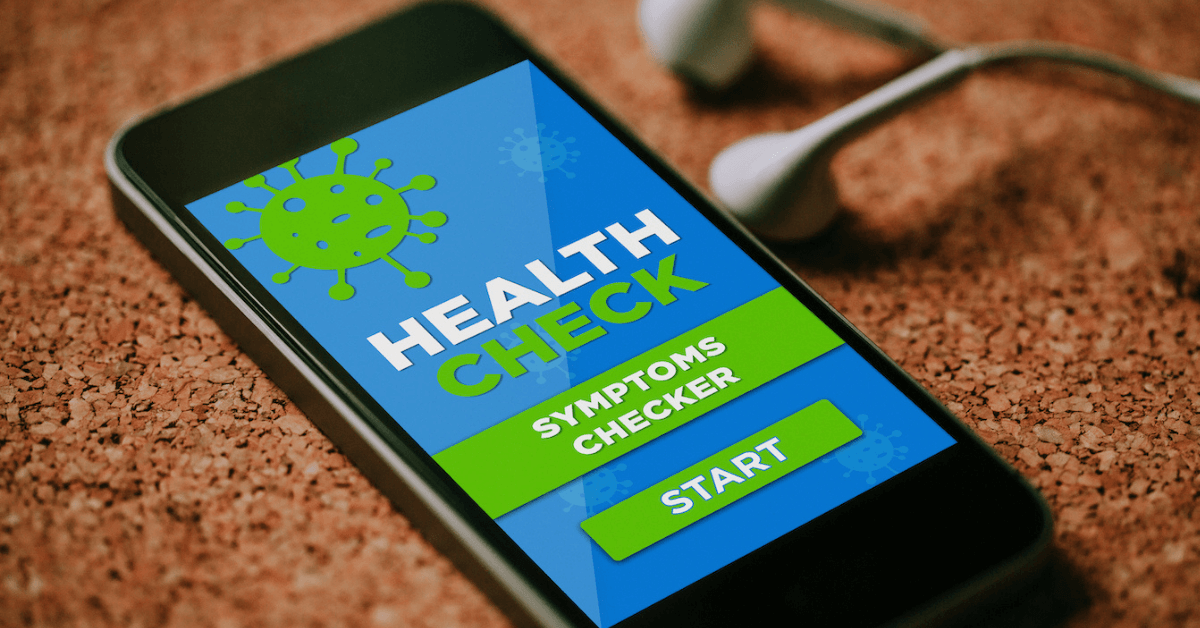March 24, 2021

Pandemic Threats to Patient Safety
ECRI’s latest annual list of the top 10 patient safety concerns got a lot of attention when it was released March 15, and deservedly so as most of the threats to patients’ safety stem directly from the COVID-19 outbreak in the U.S. and around the world.
The list, which you can download here, features such pandemic-planted landmines as:
- Racial and ethnic disparities in healthcare
- Emergency preparedness and response in aging services
- Pandemic preparedness across the health system
- Supply chain interruptions
- Drug shortages
- Telehealth workflow challenges
- Improvised use of medical devices
- Infection risk from aerosol-generating procedures
Each of the risks above are “related to or exacerbated by COVID-19,” ECRI said.
For what it’s worth as a healthcare journalist, I respect ECRI’s work, and I also agree with everything on ECRI’s list.
That said, I do think there was one omission on ECRI’s list: COVID-19 symptom checkers. Who among us hasn’t looked up their or a loved one’s sore throat or cough to see if they should go to urgent care or the emergency room? I mean, if you didn’t smell bacon cooking in the kitchen on Sunday morning, you were scrambling for your phone, tablet or laptop, not your eggs.
The problem is, not all symptom checkers are the same. Some may even be dangerous.
Researchers from the University of Gibraltar in Gibraltar, Gibraltar (I loved typing that!), compared the care recommendations of nationwide and government-sponsored COVID-19 symptom checkers in four countries: Japan, Singapore, the U.S. and the United Kingdom.
The researchers ran 52 simulated cases of mild, moderate, severe and critical COVID-19 cases and cases of sepsis and bacterial pneumonia that mimic COVID symptoms through each of the symptom checkers in each of the four countries. The researchers noted whether the symptom checker told the faux people to go get checked out or to stay home. Here’s what happened:
- 88% (46 of 52) of the cases in Singapore were referred for care
- 77% (40 of 52) of the cases in Japan were referred for care
- 44% (23 of 52) of the cases in the U.K. were referred for care
- 38% (20 of 52) of the cases in the U.S. were referred for care
Moreover, “both the U.S. and the U.K. symptom checkers consistently failed to identify severe COVID-19, bacterial pneumonia and sepsis, triaging such cases to stay home,” the researchers said.
Further, “there is the potential for such patient-led assessment tools to worsen outcomes by delaying appropriate clinical assessment,” they said.
Ya think! If this isn’t a patient safety concern, I don’t know what is.
The researchers published their study in BMJ Health & Care Informatics, and you can download it here.
Now, I know we all knock the healthcare system in the U.S. for over-treating patients and providing low-value or unnecessary care with fee-for-service medicine as the economic driver of the problem. But in this case, we’re saying, “Nah, you’re fine. Stay home. Get some rest. Drink plenty of fluids.”
I’d hate to think that COVID symptom checkers here and in the U.K. are biased somehow to reflect our respective cultures, i.e., I’ll die from any disease I want dammit, keep a stiff upper lip, or to artificially keep our respective confirmed COVID case numbers down. Hmmm….
A more likely explanation is that some symptom checkers are better than others. They’re more sensitive to patients’ symptoms, ask the right follow-up questions and can pair symptoms with others and other health risk factors to triage patients more accurately.
If we want patients to be better consumers of healthcare, then we owe it to them to give them precise tools to make better decisions over their own health and use of the healthcare system.
Thanks for reading.
Stay home. Stay safe. Stay alive. The vaccine is coming. Really. Eventually.





